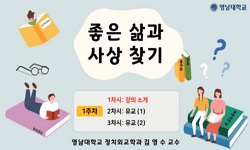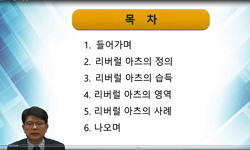Information age is all the rage and asking the information to the third parties from government is also up to the roof. Asking the information to the third parties adopts too numerous forms and compulsory methods to reduce in a line. In Korea, Courts ...
http://chineseinput.net/에서 pinyin(병음)방식으로 중국어를 변환할 수 있습니다.
변환된 중국어를 복사하여 사용하시면 됩니다.
- 中文 을 입력하시려면 zhongwen을 입력하시고 space를누르시면됩니다.
- 北京 을 입력하시려면 beijing을 입력하시고 space를 누르시면 됩니다.

인터넷서비스제공자를 통해서 본 제3자 보유정보에 대한 영장주의의 실효성 = Effectiveness of Prior Warrant Preference Doctrine against Third Parties in the Constitution : Case of Internet Service Provider
한글로보기https://www.riss.kr/link?id=A87008234
- 저자
- 발행기관
- 학술지명
- 권호사항
-
발행연도
2009
-
작성언어
-
- 주제어
-
KDC
300
-
등재정보
KCI우수등재
-
자료형태
학술저널
-
수록면
144-203(60쪽)
- DOI식별코드
- 제공처
-
0
상세조회 -
0
다운로드
부가정보
다국어 초록 (Multilingual Abstract)
Information age is all the rage and asking the information to the third parties from government is also up to the roof. Asking the information to the third parties adopts too numerous forms and compulsory methods to reduce in a line. In Korea, Courts has interpreted the prior warrant preference doctrine in the Constitution narrowly, applying only to law enforcement compulsory investigation process. However, even if the current protection of prior warrant is enlarged, the actual effects is very dubious. Korean Courts maintain the classic prior warrant preference doctrine based on property-centered whether it is involved with expectation of privacy, while the U.S. Courts only protect expectation of privacy through 4th Amendment. At appearance, this protection seems broader than U.S. counterparts in relation with third parties withholding information. In real, the prior warrant preference doctrine fails in providing effective protection, because it focuses on prevention of forced confession through detention. Actually, the Protection of Communication Privacy Act provides broad prior warrant process against search and seizure of Internet Service Provider withholding informations while U.S. only protects person to person message less than 180 days through warrants. However, the protection of Courts against the most invasive search and seizure warrant in Korea fall shorts of expectations, compared U.S. Courts in Google case. The reason behind this failure is low threshold issuing search and seizure warrants and absence of suppression remedies.
동일학술지(권/호) 다른 논문
-
연예인의 프라이버시권 법리 -일본의 스마프 쫓아가기 사건의 검토와 적용을 중심으로-
- 법조협회
- 손형섭 ( Hyeung Seob Son )
- 2009
- KCI우수등재
-
- 법조협회
- 임채웅 ( Chae Woong Lim )
- 2009
- KCI우수등재
-
유엔인권이사회의 보편적 정례검토제도 -한국의 실행과 평가를 중심으로-
- 법조협회
- 박병도 ( Byung Do Park )
- 2009
- KCI우수등재
-
판례평석(判例評釋) : 의약품의 사용설명서와 부작용에 대한 의사의 설명의무 -대법원 2005. 4. 29. 선고 2004다64067 판결을 중심으로-
- 법조협회
- 김기영 ( Ki Young Kim )
- 2009
- KCI우수등재




 KCI
KCI KISS
KISS





